Ethics in Content Marketing: Is Omission Unethical?
Note: In the latest episode of The Charlotte Content Marketing Podcast, I discuss the issue of ethics in content marketing. More specifically, I cover the topic of omission and discuss whether leaving out information is unethical.
I believe this topic is crucial for all business owners. From enterprise-level corporations down to local retailers and everyone in between, it’s vital to consider whether what you’re doing in your marketing is ethical or not.
As the founder of Charlotte Content Marketing, I've spent over a decade navigating the complex world of digital marketing and content development. Today, I want to share my thoughts on a question that's been nagging at me lately (and it might be nagging you too): Is omission in content marketing unethical?
Ignoring ethics in your content marketing efforts can lead to legal problems, customer complaints, and a damaged reputation
Why Should I Care About Ethics in Marketing?
Before I continue, let’s take a moment to cover why ethics in marketing is an important topic.
Ethical marketing practices are not just morally sound—they're good for business. Consider the following benefits:
Building trust
Transparent communication fosters long-term customer relationships.
Mitigating legal risks
Ethical practices help avoid potential lawsuits and regulatory issues.
Enhancing brand reputation
Consistent ethical behavior strengthens a company's image.
Attracting conscious consumers
Modern audiences increasingly value ethical brands.
The Dallas Deception: A Turning Point in My Career
Back in 2012, I encountered a situation that would forever shape my approach to marketing ethics.
I was working for an agency in Dallas, tasked with a seemingly straightforward reputation management project. Little did I know, I was about to stumble into an ethical minefield.
The client, posing as an executive recruiter, was running an elaborate scam:
Setting up fake interviews with accomplices
Charging hopeful applicants substantial fees
Stringing along job seekers for months on end
Vanishing and reappearing in new towns under different aliases
As I dug deeper, I uncovered a trail of deception spanning Texas and Oklahoma. A major Dallas newspaper had even exposed the operation.
Faced with this reality, I made the difficult but necessary decision to walk away from the project.
This experience was a wake-up call. It solidified my commitment to ethical marketing practices and laid the foundation for what would become Charlotte Content Marketing's core values.
I was once asked to work on an account of a scammer and declined due to an ethical conflict.
The Ethical Tightrope: Omission in Marketing
So, is omission always unethical in marketing? It's a question I grapple with daily here in Charlotte. Our job as marketers is to highlight the positives and build desire. We're not in the business of airing dirty laundry or focusing on negatives.
But where do we draw the line?
You need to have a line that you will not cross when it comes to ethics in marketing
My personal ethical boundary is clear: I won't cross it if omitting information could lead to harm. If I'm aware that a product or service has a serious issue that could hurt consumers, I won't be part of hiding that information.
However, not everything needs to be said all the time. Subjective negative opinions or minor issues? I'm comfortable omitting those to focus on the positives. It's about striking a balance between effective marketing and ethical responsibility.
If there is credible evidence that you are lying in your marketing content, then this would be unethical.
The Mary Poppins Approach to Tough Situations
When we do need to address potential negatives, I believe in the Mary Poppins approach: "A spoonful of sugar helps the medicine go down." We find ways to present necessary information palatably while remaining honest.
For instance, if a product has a history of breakage issues, we might highlight the manufacturer's outstanding warranty. This approach acknowledges the potential problem while showcasing the company's commitment to customer satisfaction.
A Call to Charlotte Businesses
If you're a business owner in Charlotte or the surrounding areas and you're concerned about the ethics of your current marketing setup, we're here to help. We offer free evaluations to ensure your marketing aligns with ethical best practices.
In the Internet Age, your brand’s online reputation is your most valuable asset. Let's protect it together.
Is it ethical to omit information in your marketing content? That depends on how detrimental that information could be to customers and the general public.
Wrapping Up: The Ongoing Ethical Journey
As we continue to navigate changes in digital technology, customer expectations, and marketing practices as a whole, one thing remains constant: the need for ethical consideration. While our job is to put our clients' best foot forward, it should never come at the cost of integrity.
I'd love to hear your thoughts on this. Have you faced similar ethical dilemmas in your business? How do you handle the balance between promotion and transparency?
Feel free to reach out to us at (704) 323-6762 or through our contact form if you'd like to discuss ethical marketing strategies for your business. Let's keep the conversation going and work together to elevate the standard of marketing in Charlotte and beyond.





